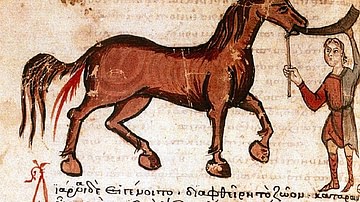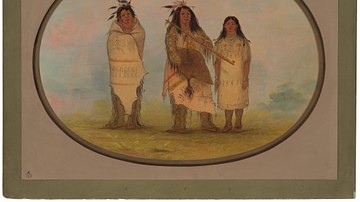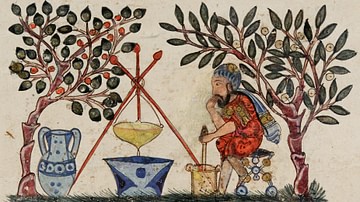Review

| Rating: | |
|---|---|
| Title: | Healing with Poisons: Potent Medicines in Medieval China |
| Author: | Yan Liu |
| Audience: | University |
| Difficulty: | Medium |
| Publisher: | University of Washington Press |
| Published: | 2021 |
| Pages: | 276 |
"Healing with Poisons," winner of the 2023 William Welch Medal, is a groundbreaking work delving into the realm of "du" (toxic or poison) within Chinese pharmacy. Taking readers to medieval China, Yan Liu examines how physicians, officials, and other historical figures conceptualized and utilized potent substances. It contributes to the ongoing scholarly discussion on pharmaceuticals and challenges the notion that Chinese medicine is natural, mild, and gentle.
Healing with Poisons: Potent Medicines in Medieval China is a groundbreaking work delving into the realm of du, meaning toxic or poison, within Chinese pharmacy. Taking readers to China during the 3rd to 10th centuries, a crucial period for the systematic development of knowledge surrounding du, Yan Liu examines how physicians, officials, and other historical figures conceptualized and utilized potent substances. This book contributes to the ongoing scholarly discussion on pharmaceuticals and reveals the intriguing fluid materiality of medicines. It further challenges the notion that Chinese medicine is natural, mild, and predominately focuses on restoring the body's harmony.
Arranged in chronological order, Healing with Poisons contains three parts. Part I examines the etiology of du, highlighting the dynamic and mutually transformative nature of medicinal substances. While the biomedicine field emphasizes the concept of “active ingredient,” Liu demonstrates that classical Chinese pharmacy does not adhere to a model of a drug’s material essence being pure and unchanging (57). Poison and medicine resist fixed categorization but are instead mutually constitutive. The second chapter concentrates on the techniques practitioners employ to harness the power of poisons, including dosage control, drug combination, and drug processing. In contrast to the belief that Chinese herbal remedies are natural and gentle, Liu points out the long history of technical manipulation of drugs in classical Chinese medicine. Practitioners were proficient in employing potent drugs to forcefully destroy or expel pathogenic entities.
Part II focuses on the state’s engagement in standardizing pharmaceutical knowledge and regulating medical practices. The paradoxical nature of poisons, being both beneficial and damaging, mirrored the opportunities and challenges inherent in maintaining effective governance. Part III explores the domain of medicines aimed at enhancing life or transforming the body into its highest state of being (often meaning immortality). By unpacking the debates surrounding the Five-Stone Powder, one of the most controversial drugs in medieval China, the author uncovers a fine line between medicine and religion. Despite not being the book's main focus, the study on Five-Stone Powder invites further research into the intertwined subjects of medicine, alchemy, and religion during the premodern period.
Healing with Poisons masterfully weaves together the histories of medicine and the body. As Yan Liu convincingly argues, the effective harness of medicines’ inherent toxicity required physicians to closely monitor patients’ bodily sensations. The outcome of therapy is often a dynamic, systematic, and ongoing process. Accordingly, the concept of side effects did not exist in classical Chinese medicine. The dichotomous distinction between intended and unintended effects is inadequate. Violent bodily sensations, such as vomiting, mucus, tears, and diarrhea, may indicate the purging of harmful substances and the process of purification. At the same time, a new mode of knowledge production rooted in bodily sensations appeared in medieval China. As Liu shows in Chapter Five, when Sun Simiao combined medical cases into a collection of formulas, his primary criterion was personal bodily experiences with formula usage. The same chapter is also an excellent example of Liu's mastery of a wide array of literary genres, including medical texts, religious treatises, archaeologically recovered manuscripts, and more.
Yan Liu is Associate Professor of History at the State University of New York, Buffalo. This book initiates a thought-provoking discussion on the intricate relationship between poison and medicine, stimulating inquiries into Chinese pharmacology, alchemy, the corporeal experience, and other topics. More questions can be asked, such as how practitioners differentiated violent sensation from potents or illnesses, when and how the fluid concept of du solidified into the fixed concept of poison, and whether the fluid idea of du caused difficulties in patient-practitioner relationships or legal disputes. Despite its extensive and inspiring subject matter, Healing with Poisons maintains a well-organized structure and clear writing style. Anyone interested in the history of medicine or classical Chinese medicine is strongly encouraged to read this book.
About the Reviewer
Cite This Work
APA Style
Xu, C. (2023, June 20). Healing with Poisons: Potent Medicines in Medieval China. World History Encyclopedia. Retrieved from https://www.worldhistory.org/review/368/healing-with-poisons-potent-medicines-in-medieval/
Chicago Style
Xu, Chang. "Healing with Poisons: Potent Medicines in Medieval China." World History Encyclopedia. Last modified June 20, 2023. https://www.worldhistory.org/review/368/healing-with-poisons-potent-medicines-in-medieval/.
MLA Style
Xu, Chang. "Healing with Poisons: Potent Medicines in Medieval China." World History Encyclopedia. World History Encyclopedia, 20 Jun 2023, https://www.worldhistory.org/review/368/healing-with-poisons-potent-medicines-in-medieval/. Web. 28 Apr 2025.


